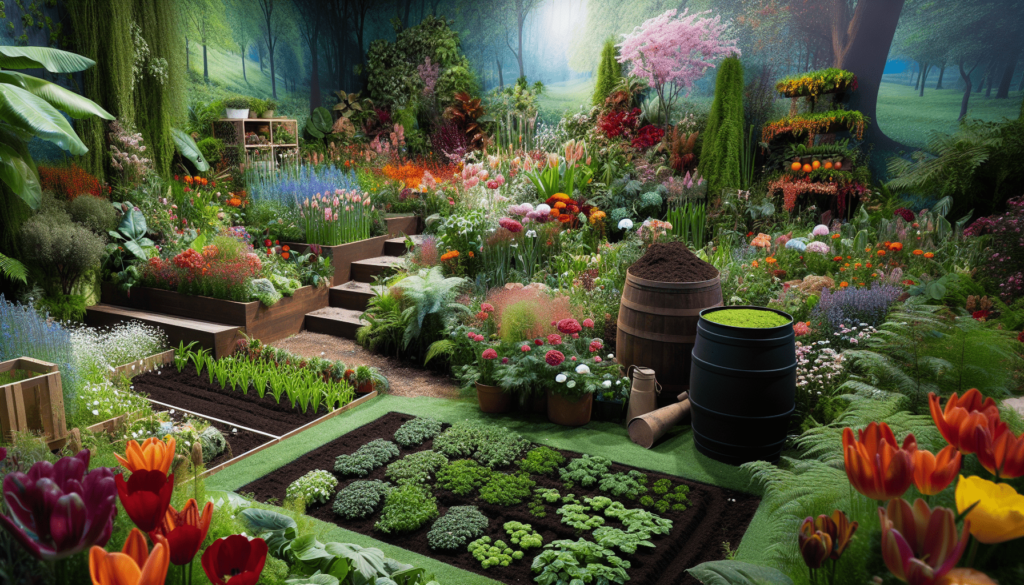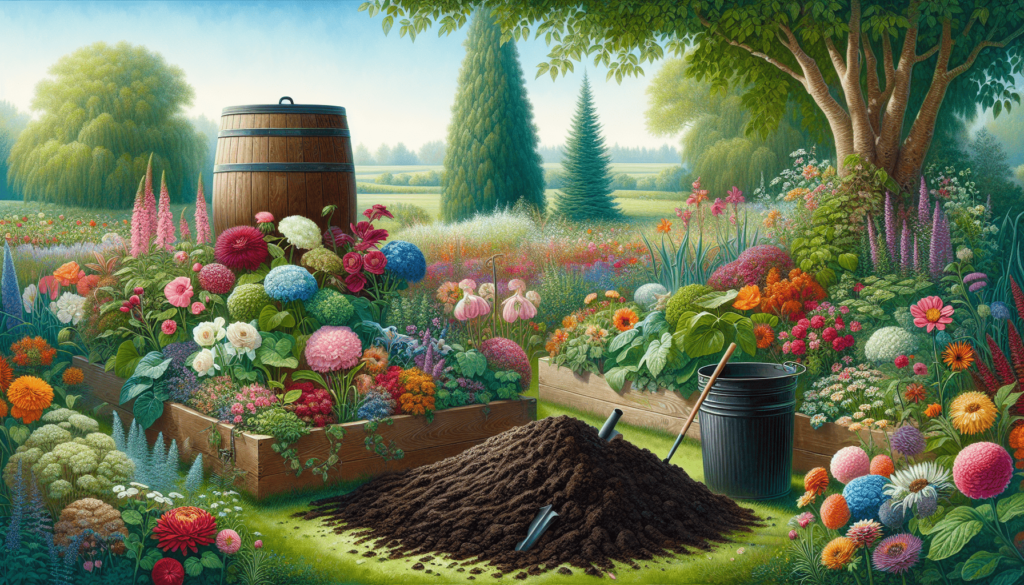
Let’s embark on a journey together towards creating an eco-friendly garden. In our article, “Top 5 Tips For Making Your Garden More Sustainable,” we delve into simple yet impactful practices we can adopt to ensure our green spaces not only thrive but also contribute positively to our environment. From choosing native plants to conserving water and reducing waste, these tips will help us cultivate a garden that is both beautiful and sustainable. Join us as we explore these practical steps and get inspired to make our gardening habits greener and more mindful. Have you ever wondered how you can make your garden more sustainable? While the idea might seem daunting, taking small steps can have a big impact on the environment. As garden enthusiasts, we often think about the beauty and productivity of our gardens, but sustainability can play a crucial role in making our outdoor spaces not only attractive but also eco-friendly. So let’s explore the top 5 tips to transform our gardens into sustainable sanctuaries.
Choosing Native Plants
One of the most crucial aspects of creating a sustainable garden is to select native plants. Native plants are those that naturally occur in our local area and have adapted to the local climate, soil, and wildlife.
Benefits of Native Plants
Native plants offer numerous advantages:
| Benefits | Description |
|---|---|
| Low Maintenance | Require less water, fertilizers, and pesticides. |
| Supports Local Wildlife | Provide habitat and food for local insects, birds, and animals. |
| Resilient to Local Climate | Adapted to local weather conditions and soil types. |
| Enhances Biodiversity | Helps maintain healthy ecosystems in our gardens. |
By selecting native plants, we not only create a beautiful and sustainable garden, but we also contribute to the well-being of our local environment.
Composting and Soil Health
The health of our garden largely depends on the quality of the soil. One of the best ways to enhance soil health is through composting.
Benefits of Composting
Composting is an excellent method to manage waste and improve soil health. Here are the key benefits:
| Benefits | Description |
|---|---|
| Reduces Waste | Diverts waste from landfills. |
| Enriches Soil | Adds nutrients and beneficial microorganisms. |
| Saves Money | Reduces the need for chemical fertilizers. |
| Reduces Greenhouse Gas Emissions | Decreases methane emissions from organic waste decomposition. |
By composting kitchen scraps and garden waste, we can create rich, fertile soil that will help our plants thrive while reducing our environmental footprint.

Water Conservation
Water is a valuable resource, and conserving it is essential for a sustainable garden. There are several ways we can effectively manage water use in our gardens.
Efficient Irrigation Systems
One of the most effective ways to conserve water is by using efficient irrigation systems such as drip irrigation or soaker hoses.
Benefits of Efficient Irrigation
| Methods | Description |
|---|---|
| Drip Irrigation | Delivers water directly to the roots, minimizing evaporation. |
| Soaker Hoses | Releases water slowly and evenly, reducing runoff and waste. |
Efficient irrigation systems ensure that every drop of water is used effectively, promoting healthier plants and reducing water waste.
Rainwater Harvesting
Collecting rainwater is another sustainable practice that can greatly benefit our gardens. By installing rain barrels or other collection systems, we can capture and store rainwater for later use.
Benefits of Rainwater Harvesting
| Benefits | Description |
|---|---|
| Reduces Water Bills | Lowers the dependence on municipal water supply. |
| Provides Natural Irrigation | Rainwater is free from chemicals and rich in nutrients. |
| Reduces Stormwater Runoff | Helps prevent erosion and water pollution. |
By implementing rainwater harvesting, we can ensure that our gardens receive an adequate water supply while reducing our reliance on treated water.
Reducing Chemical Use
Using chemicals in our gardens can harm the environment, wildlife, and even our health. Reducing or eliminating chemical use is a significant step toward sustainability.
Organic Gardening Practices
Adopting organic gardening practices is an excellent way to reduce chemical use. These practices include:
| Practice | Description |
|---|---|
| Natural Pest Control | Using beneficial insects, neem oil, or homemade remedies. |
| Organic Fertilizers | Using compost, manure, or bone meal. |
| Crop Rotation and Companion Planting | Enhancing soil fertility and controlling pests naturally. |
By opting for organic gardening, we can create a healthier garden environment that supports biodiversity and protects our well-being.

Promoting Biodiversity
A sustainable garden is a biodiverse garden. By encouraging a variety of plants and wildlife, we can create a balanced and thriving ecosystem.
Creating Wildlife Habitats
Providing habitats for wildlife is a great way to promote biodiversity in our gardens. Simple actions like adding bird feeders, bat houses, and water features can make a significant difference.
Benefits of Promoting Biodiversity
| Benefits | Description |
|---|---|
| Healthy Ecosystems | Supports a variety of organisms, leading to a balanced garden. |
| Natural Pest Control | Predators help control pest populations naturally. |
| Pollination | Bees and butterflies help pollinate flowers and crops. |
By inviting wildlife into our gardens, we can create a harmonious space where plants and animals coexist, leading to a more sustainable and vibrant garden.
Conclusion
Incorporating sustainable practices into our gardens is not only beneficial for the environment but also enhances the beauty and health of our outdoor spaces. By choosing native plants, composting, conserving water, reducing chemical use, and promoting biodiversity, we can create a garden that is both aesthetically pleasing and environmentally responsible.
So let’s take these small yet impactful steps to make our gardens more sustainable, and in doing so, contribute positively to the well-being of our planet.





